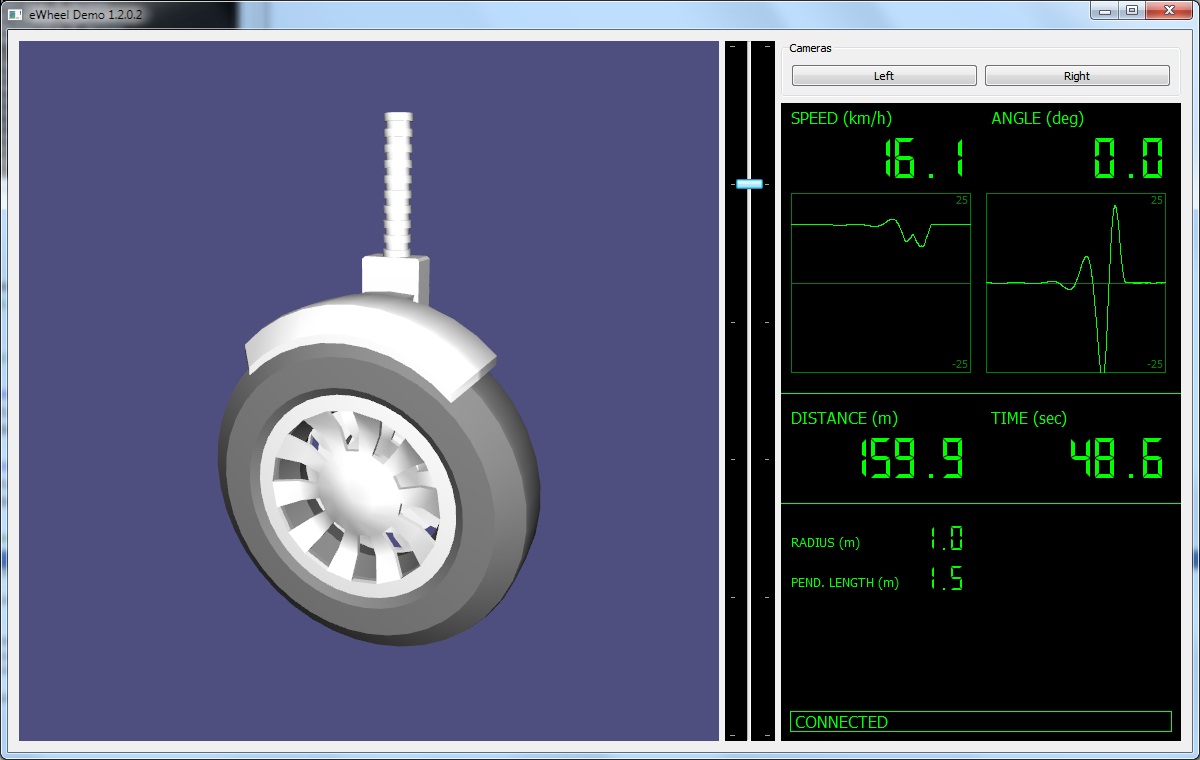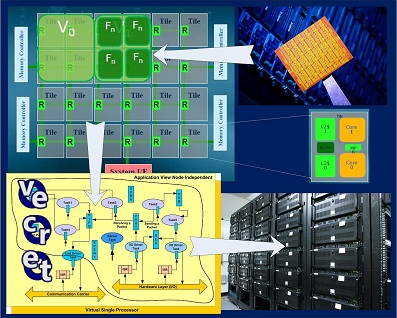You are hereOpenComRTOS
OpenComRTOS
Main mission of Rosetta's Philae lander accomplished
Today (15 November 2014), Rosetta's Philae lander went into sleep, its batteries depleted but still it could upload the last set of measurements. The lander might wake up again if it can catch enough sunlight to recharge the batteries. Rosetta itself will continue its mission.
Ada and SPARK-Ada for OpenComRTOS Designer
Ada and SPARK-Ada interface for OpenComRTOS Designer
Ada has a long history. Originally developed in the late 70's on request of the US DoD, it became available with a certified compiler in 1983. While the language had as goal to improve the quality of software, in its striving to be complete (procedural, object-oriented, modularity, concurrent tasking and many more features), it was complex and fairly heavy to use. Nevertheless, it was and still is the language of choice for large safety critical applications, especially when large teams are involved. Its complexity, the steep pricing for the tools and its lower performance inhibited its wider use. Hence C compilers offering often better performance and more control over the hardware gradually became the compiler of choice even if thelanguage has many safety issues. Ironically, VHDL which is a widely used programming language to develop hardware circuits heavily borrowed fromAda.
Meet Altreonic at TECHINNOV 2013 in Paris 14 February
Altreonic offers advanced embedded systems technology under a risk-free Open Technology License. The licensee receives all supporting design documents, formal models, source code, test suites, etc. and the right to rebrand the software whereby all certification and business risks are seriously reduced. Free yourself from legacy COTS and open source limitations. Two technologies are offered: the formally developed, network-centric OpenComRTOS Designer and the internet based GoedelWorks portal for supporting certifiable engineering projects.
Altreonic offre des technologies avancées pour systèmes embarqués sous une Licence de Technologie Ouverte sans risque. Le licencié reçoit tous les documents d'appui, les modèles formels, code source, des suites de tests, et le droit de renommer le logiciel. Tous les risques de certification et commerciaux sont sérieusement réduits. Libérez-vous des limites du COTS et source libre. Deux technologies sont proposées: OpenComRTOS Designer, un OS tmps réel distribué, formellement développé et le portail GoedelWorks pour soutenir des projets d'ingénierie certifiables.
Register for a B2B meeting here or contact us directly.
Workshop Concurrent Embedded Programming
A single approach for many-multi-parallel-distributed systems
After 3 successful sessions at IMEC in Leuven, we are planning to repeat the workshop elsewhere. We are looking for hosting partners across Europe. Find a place, agree on a date, register 20 registrants and we come to your place. Contact us at info. request (at=@) altreonic. com
This workshop aims at debunking the myth that writing concurrent programs for many-core, multi-core, parallel and distributed (embedded) systems is difficult. On the contrary, a single approach with a solid formal basis can handle them all, including reusing existing sequential code.
OpenComRTOS supports high performance PowerPC of Freescale
Altreonic is now announcing a port of OpenComRTOS to the high performance PowerPC processors of Freescale and integrating it in the OpenComRTOS Designer environment.
A full kernel with all services only requires between 7.1 to 9.8 KBytes for program memory and less than 6 KBytes of data memory, depending on the compile time options and services used. This was measured by compiling a minimal application for an e600 target with Altivec support and comparing the results using a mapfile analyser. Nevertheless, this is still a complete priority based preemptive scheduling RTOS with support for distributed priority inheritance.
Download OpenComRTOS designer suite v.1.4. Master thesis proposal on a safety case.
 The OpenComRTOS designer suite v.1.4. (Win32) with new supporting tools and demos is now avalable from the download section.
The OpenComRTOS designer suite v.1.4. (Win32) with new supporting tools and demos is now avalable from the download section.
An interesting new example is the e-wheel simulator (see screenshot). It is composed of 3 nodes, one handling the input from the user, one running the control loop and one running the physical model. An additional windows application handles the 3D visualisation and user input. While the example is a simulation, it is complete and by a simple recompilation the controller node can be remapped to e.g. an attached ARM controller (of any other supported). This ewheel demo is also the subject of a Master Thesis proposal supported by Flanders Drive. Interested students can contact us or Flanders Drive. For details see the attached thesis outline.
OpenComRTOS release v.1.4 - with Safe Virtual Machine for C.
Altreonic is new releasing v.1.4 of its breakthrough formally developed network-centric OpenComRTOS suite. While the visual development environment was enhanced to make multi-processor developments even easier, v. 1.4 now has the Safe Virtual Machine (SVM) for C fully integrated and the RTOS itself has now fully distributed support for priority inheritance for easier resource management. The latter is a pre-condition for lower power consumption and better predictable real-time behaviour at the application level.
Announcement - Altreonic porting to Intel Labs 48core SCC chip

Altreonic has signed an agreement with Intel Labs to port its multicore capable OpenComRTOS to the Single-chip Cloud Computer (SCC) experimental processor, a 48-core ‘concept vehicle’ created by Intel Labs as a platform for many-core software research. It incorporates technologies intended to scale multi-core processors to 100 cores and beyond, such as an on-chip network, advanced power management technologies and support for “message-passing.”
Programming parallel systems with many processor cores has been at the core of Altreonic’s technology for many years and hence it was natural for Altreonic to join in the effort as it already has proven technology.
Altreonic’s scalable and formalized technology gives more for less.
Altreonic is now announcing two new products that clearly demonstrate how a formalized development can result in more scalability and less energy consumption. First we present our brand-new Safe Virtual Machine for C in just 3.8 KB. Next we present a port to the ultra low power CoolFlux DSP core of NXP. Formalized development is more than verifying correctness, it actually results in cleaner, more efficient and more scalable architectures.
Altreonic bundles its realtime tools in OpenComRTOS Designer
Altreonic NV, the Belgium based embedded software solutions provider is pleased to announce the bundling of its formally developed and network centric OpenComRTOS with supporting tools in an integrated tool suite. The suite comprises OpenComRTOS 1.3, OpenVE and OpenTracer.